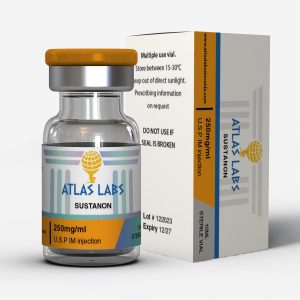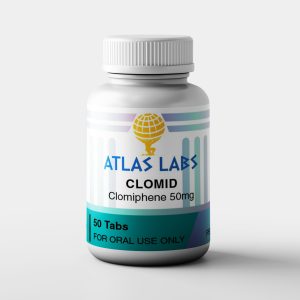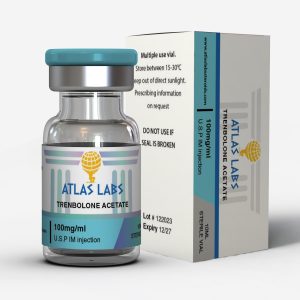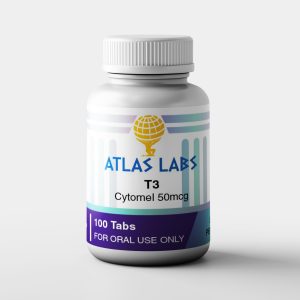Peptides are increasingly popular in the health, wellness, and athletic performance communities—but what exactly are they? From boosting muscle growth and speeding recovery to promoting skin health and longevity, peptides offer a wide range of benefits. This article breaks down the science behind peptides, explores their common types and uses, and explains why they’re gaining attention as powerful, versatile compounds.
What Are Peptides?
Definition: Small Chains of Amino Acids
Peptides are short sequences of amino acids—the building blocks of proteins—linked together by peptide bonds. While proteins are long chains made up of hundreds or thousands of amino acids, peptides generally consist of between 2 and 50 amino acids.
Natural Role in the Body
Peptides act as signaling molecules in the body. They regulate many physiological processes, including hormone release, immune responses, tissue repair, and metabolism. Because of their critical roles, peptides are sometimes called the body’s “messengers.”
How Do Peptides Work?
Peptides as Signalling Molecules
Each peptide interacts with specific receptors on cell surfaces, triggering a cascade of biological effects. For example, certain peptides can stimulate the pituitary gland to increase production of growth hormone, which then promotes muscle growth, fat metabolism, and tissue repair.
Differences From Proteins and Hormones
- Proteins: Larger, complex molecules that perform structural and enzymatic functions.
- Peptides: Smaller, act primarily as messengers or regulators.
- Hormones: Some peptides act as hormones (like insulin), but not all hormones are peptides.
Common Types of Peptides and Their Benefits
Growth Hormone Releasing Peptides (GHRPs)
These peptides stimulate the release of human growth hormone (HGH), which is critical for muscle growth, fat burning, and recovery.
- CJC-1295: A popular GHRH analog with a long half-life, promoting sustained HGH release.
- Ipamorelin: Known for selective HGH release with fewer side effects like increased appetite.
Tissue Repair Peptides
Peptides that support healing of muscles, tendons, ligaments, and other tissues.
- BPC-157: Derived from stomach peptides, it promotes fast healing of injuries and reduces inflammation.
- TB-500 (Thymosin Beta-4): Supports tissue regeneration and reduces recovery time.
Cosmetic and Anti-Aging Peptides
These peptides help improve skin elasticity, reduce wrinkles, and promote collagen production.
- Matrixyl (Palmitoyl Pentapeptide-4): Stimulates collagen synthesis, helping reduce wrinkles.
- Copper Peptides: Promote wound healing and skin regeneration.
How Are Peptides Administered?
Common Methods
- Injectable: The most common method for performance peptides, allowing direct absorption into the bloodstream.
- Topical: Used mainly for cosmetic peptides applied as creams or serums.
- Oral: Limited by digestion, but some peptides are formulated for oral use with protective coatings.
Safety and Dosage
Dosage varies widely depending on the peptide and intended use. Because peptides are broken down quickly by enzymes, precise dosing and timing are critical for effectiveness.
Benefits of Using Peptides
Enhanced Muscle Growth and Fat Loss
Peptides that stimulate HGH release can support lean muscle mass increase while enhancing fat metabolism, making them popular among athletes and bodybuilders.
Faster Injury Recovery
Peptides like BPC-157 and TB-500 can accelerate healing times for muscle strains, ligament injuries, and joint pain, allowing athletes to train harder and more consistently.
Improved Skin Health and Anti-Aging
Cosmetic peptides help restore youthful skin by boosting collagen and elastin production, improving hydration, and reducing fine lines.
Potential Cognitive and Immune Benefits
Some peptides may also support brain health and immune function, though research is ongoing.
Common Myths and Misconceptions About Peptides
- Myth #1: Peptides are just steroids in disguise.
Peptides and steroids are fundamentally different. Peptides act as messengers that stimulate natural hormone production, while steroids are synthetic hormones themselves. - Myth #2: Peptides have no side effects.
While generally safer than steroids, peptides can cause side effects such as water retention, numbness, or increased hunger depending on the type and dose. - Myth #3: All peptides are illegal or banned substances.
The legality varies by peptide and country. Some peptides are available by prescription for medical use, while others are research chemicals with restricted use.
How to Store and Handle Peptides
Proper storage is essential to maintain peptide effectiveness.
- Keep peptides refrigerated at 2–8°C (36–46°F), especially lyophilized (freeze-dried) powders before reconstitution.
- Avoid exposure to light and moisture as this can degrade the peptides.
- Use sterile syringes and needles to prevent contamination when injecting.
Emerging Research and Future Trends
Peptides are a rapidly growing area of research, with new applications emerging for:
- Cognitive enhancement: Certain peptides may support neurogenesis and brain repair.
- Metabolic health: Investigating peptides that regulate appetite and insulin sensitivity.
- Longevity and anti-aging: Ongoing trials focus on peptides that may improve mitochondrial function and cellular repair mechanisms.
Are Peptides Safe
Side Effects and Risks
Peptides generally have a lower risk profile than anabolic steroids, but they aren’t without side effects. These can include:
- Mild water retention
- Numbness or tingling at injection sites
- Increased hunger (for certain GHRPs)
Final Thoughts: Why Peptides Are Gaining Popularity
Peptides represent an exciting frontier in health, fitness, and anti-aging due to their targeted, natural mechanisms and relatively mild side effect profiles. Whether you’re looking to recover from injury faster, boost muscle growth, or improve skin health, peptides may offer a powerful, flexible solution—provided you approach their use carefully and responsibly.
The information provided in this article is intended for educational and research purposes only. It does not constitute medical advice or a recommendation to use any substances discussed. Always consult with a licensed medical professional before beginning any supplement, peptide, or anabolic steroid protocol.
If you’re interested in exploring high-quality research compounds, you can browse our shop here.




Leave a comment